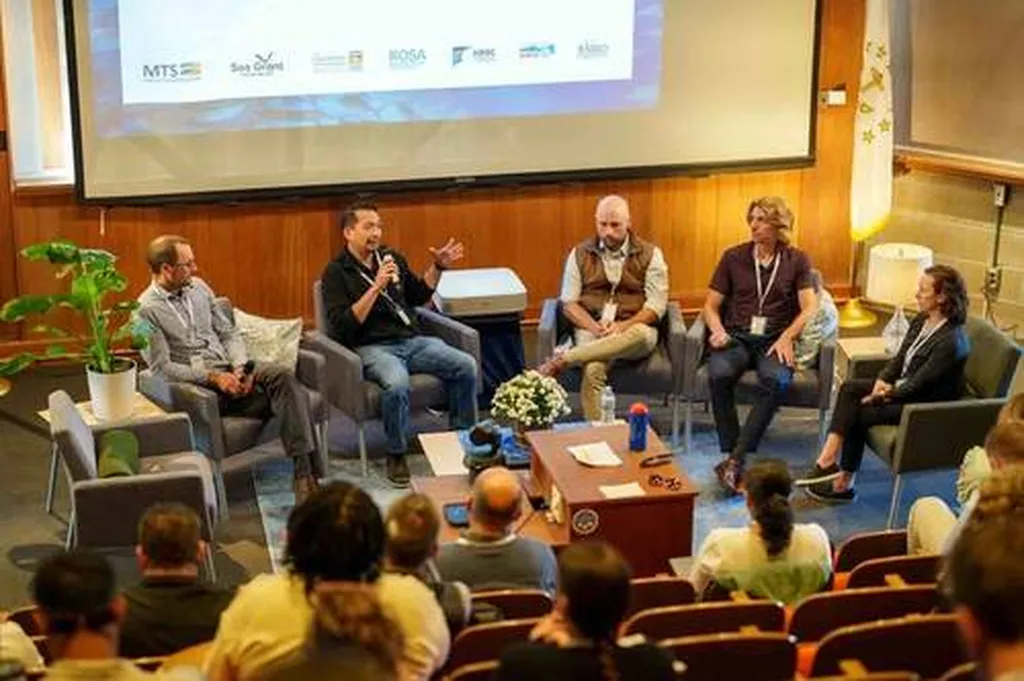The University of Rhode Island (URI) and Rhode Island Sea Grant recently hosted the Marine Technology Society’s annual TechSurge conference, bringing together around 120 attendees from across the globe. The three-day event, held at URI’s Graduate School of Oceanography on the Narragansett Bay Campus, focused on fisheries and benthic monitoring for offshore development. The conference featured a mix of lectures, workshops, networking events, and a “Tech Cafe” designed to foster connections between industry professionals and students.
One of the highlights of the conference was the panel discussions, which brought together experts from various fields. Christopher Roman, professor of ocean engineering and oceanography at URI, shared insights alongside William Misa, a fisheries ecologist at TetraTech, and Cameron Thompson, a pelagic ecologist at the Northeastern Regional Association of Coastal Ocean Observing Systems. URI alumni also played a significant role, with Nicholas Chaloux, an engineer at Woods Hole Oceanographic Institution, and Emily Shumchenia, an ocean data scientist for the Northeast Regional Ocean Council, contributing their expertise.
Graduate School of Oceanography Interim Dean Steven D’Hondt reminded attendees of URI and Rhode Island Sea Grant’s pivotal role in advancing the science behind the country’s first offshore wind farm, the Block Island Wind Farm. This underscored the conference’s emphasis on the practical applications of marine technology and its critical role in offshore development.
Rhode Island Sea Grant, in partnership with the Marine Technology Society, organized the conference as the 20th Ronald C. Baird Sea Grant Science Symposium. The event also showcased ocean technology laboratories and startup businesses that collaborate with URI, offering attendees a glimpse into cutting-edge innovations in the field.
The Marine Technology Society, which has both an industry chapter for experts and researchers and a student chapter at URI, provided a platform for students to develop skills and build connections that could lead to careers in marine technology or ocean engineering.
Rhode Island Sea Grant is one of 34 programs within the National Sea Grant College Program, dedicated to enhancing environmental stewardship, long-term economic development, and the responsible use of coastal and marine resources. The conference not only advanced technical knowledge but also strengthened the network of professionals and students committed to these goals.
As the marine technology sector continues to evolve, such conferences play a crucial role in bridging the gap between academic research and industry applications. The insights shared and connections made at TechSurge are likely to drive future innovations in fisheries monitoring, offshore development, and marine technology, shaping the direction of the industry for years to come.

